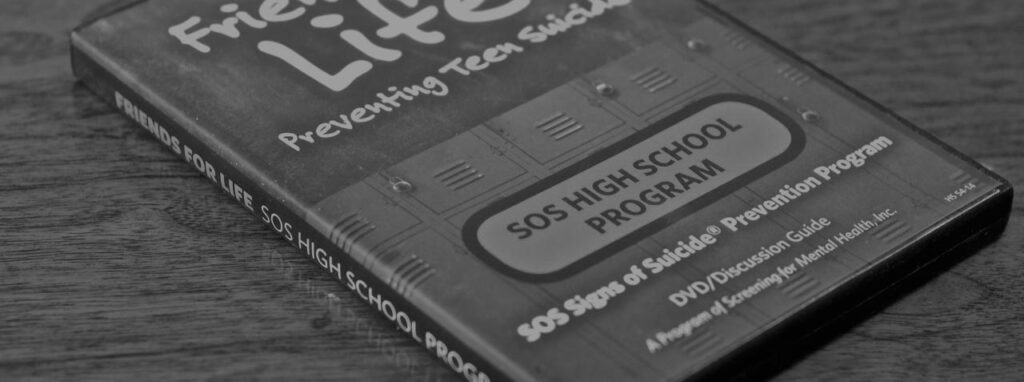 Screening for Mental Health, Inc.
×
Screening for Mental Health, Inc.
×

PREVENTION & EDUCATION
SAMHSA operates within the U.S. Department of Health and Human Services, focusing on improving the quality and availability of prevention, treatment, and recovery support services for mental health and substance use disorders. The agency serves millions of Americans through grant programs, technical assistance, data collection, and policy development that shapes behavioral health care delivery across the nation.
Founded in 1992, SAMHSA has grown into a vital resource for states, communities, healthcare providers, and individuals seeking support for behavioral health challenges. The agency’s work addresses the full spectrum of mental health and substance abuse issues, from prevention and early intervention to treatment and long-term recovery support.
SAMHSA supports numerous initiatives designed to identify mental health concerns early and connect individuals with appropriate care. These programs recognize that early detection significantly improves treatment outcomes and reduces the long-term impact of mental illness.
National Screening Programs supported by SAMHSA provide communities with tools and resources to implement mental health screening across various settings. These evidence-based screening initiatives help identify individuals at risk for mental health disorders, enabling timely intervention before conditions escalate into crises. SAMHSA promotes universal screening approaches that normalize mental health assessment as a routine component of overall wellness care.
Mental Health First Aid represents one of SAMHSA’s most widely recognized initiatives. This national program trains community members to recognize signs of mental illness and substance use disorders, provide initial support, and connect individuals with professional help. Since its U.S. launch, Mental Health First Aid has trained millions of Americans, creating networks of informed citizens capable of responding effectively to mental health crises in their communities.
Project AWARE (Advancing Wellness and Resilience in Education) focuses on youth mental health within school settings. This initiative provides grants to states and communities for developing comprehensive school-based mental health programs, including screening, referral systems, and trauma-informed approaches. Project AWARE recognizes schools as critical venues for identifying and supporting young people facing mental health challenges.
SAMHSA leads national suicide prevention efforts through multiple coordinated initiatives. The National Suicide Prevention Lifeline, now known as the 988 Suicide and Crisis Lifeline, provides 24/7 crisis support accessible by calling or texting 988. This simplified number, implemented nationwide in July 2022, makes crisis intervention more accessible during mental health emergencies.
The Garrett Lee Smith Memorial Act programs provide grants to states, tribes, and colleges for youth suicide prevention. These initiatives support screening, intervention training, crisis response systems, and public awareness campaigns specifically designed to reduce suicide among young people. The programs emphasize evidence-based strategies proven effective in preventing suicide and promoting mental wellness.
Zero Suicide initiatives supported by SAMHSA work to transform the health care systems’ approach to suicide prevention. This framework provides healthcare organizations with tools and training to implement comprehensive suicide prevention strategies, including universal screening, safety planning, and caring contacts that maintain connection with at-risk individuals following crisis episodes.
SAMHSA recognizes the interconnection between mental health and substance use disorders, supporting integrated approaches that address both conditions simultaneously. Many individuals struggling with substance abuse also experience mental health challenges, making coordinated treatment essential for successful recovery.
Prevention programs funded by SAMHSA target communities, schools, and families with evidence-based strategies for reducing substance abuse risk factors while building protective factors. These initiatives educate about substance abuse dangers, promote healthy coping mechanisms, and create supportive environments that discourage drug and alcohol misuse.
Medication-Assisted Treatment (MAT) programs combine behavioral therapy with FDA-approved medications for treating opioid and alcohol use disorders. SAMHSA supports MAT expansion through grant programs, training initiatives, and policy development, recognizing this approach as the most effective treatment for substance use disorders.
PROMOTIONS & SUPPORT
SAMHSA conducts extensive research and data collection that informs mental health policy and program development nationwide. The National Survey on Drug Use and Health (NSDUH) provides annual data on substance use and mental health conditions among Americans, offering critical insights into behavioral health trends, treatment gaps, and emerging challenges.
This evidence base guides resource allocation, program design, and policy decisions at federal, state, and local levels. SAMHSA makes this data publicly accessible, enabling researchers, policymakers, and advocates to develop targeted interventions based on current behavioral health landscapes.
SAMHSA administers numerous grant programs that fund mental health and substance abuse services across America. These competitive grants support community mental health centers, crisis response systems, recovery support services, and innovative treatment models. Grant funding enables local organizations to implement evidence-based programs tailored to their communities’ specific needs.
Technical assistance provided by SAMHSA helps grant recipients implement programs effectively, adopt best practices, and achieve sustainable outcomes. This support ensures federal investments translate into meaningful improvements in community behavioral health infrastructure and service delivery.
SAMHSA provides extensive free resources for individuals, families, healthcare providers, and organizations. The SAMHSA National Helpline (1-800-662-4357) offers confidential, 24/7 treatment referral and information services in English and Spanish. The Behavioral Health Treatment Services Locator helps individuals find mental health and substance abuse treatment facilities in their areas.
Educational materials, toolkits, evidence-based practice guides, and training resources available through SAMHSA’s website support mental health promotion and substance abuse prevention efforts nationwide. These resources make evidence-based strategies accessible to communities regardless of size or resources.

RISK MANAGEMENT & LIABILITY
SAMHSA continues evolving to meet emerging behavioral health challenges facing Americans. Current priorities include expanding crisis response systems, addressing the opioid epidemic, improving mental health equity, and integrating behavioral health into primary care settings. Through sustained commitment to evidence-based approaches and community partnerships, SAMHSA initiatives are transforming how America addresses mental health and substance abuse, creating pathways to recovery and wellness for millions of individuals and families nationwide.

FEATURED PROGRAMS
SOS Second Act is designed to build resiliency in young adults. In addition to reviewing the signs and symptoms of depression and suicidality, students are prompted to discuss substance abuse and other risky behaviors. Students are provided with a solid foundation on health care basics, health insurance, and self-care tips on seeking mental health treatment in the “real world.”
The Online Parent Brief Screen for Adolescent Depression (BSAD) allows parents to assess their child for suicide or depression risk factors. After parents complete a series of questions online, the screening provides results, local referral options (determined by each school), and relevant, educational information.